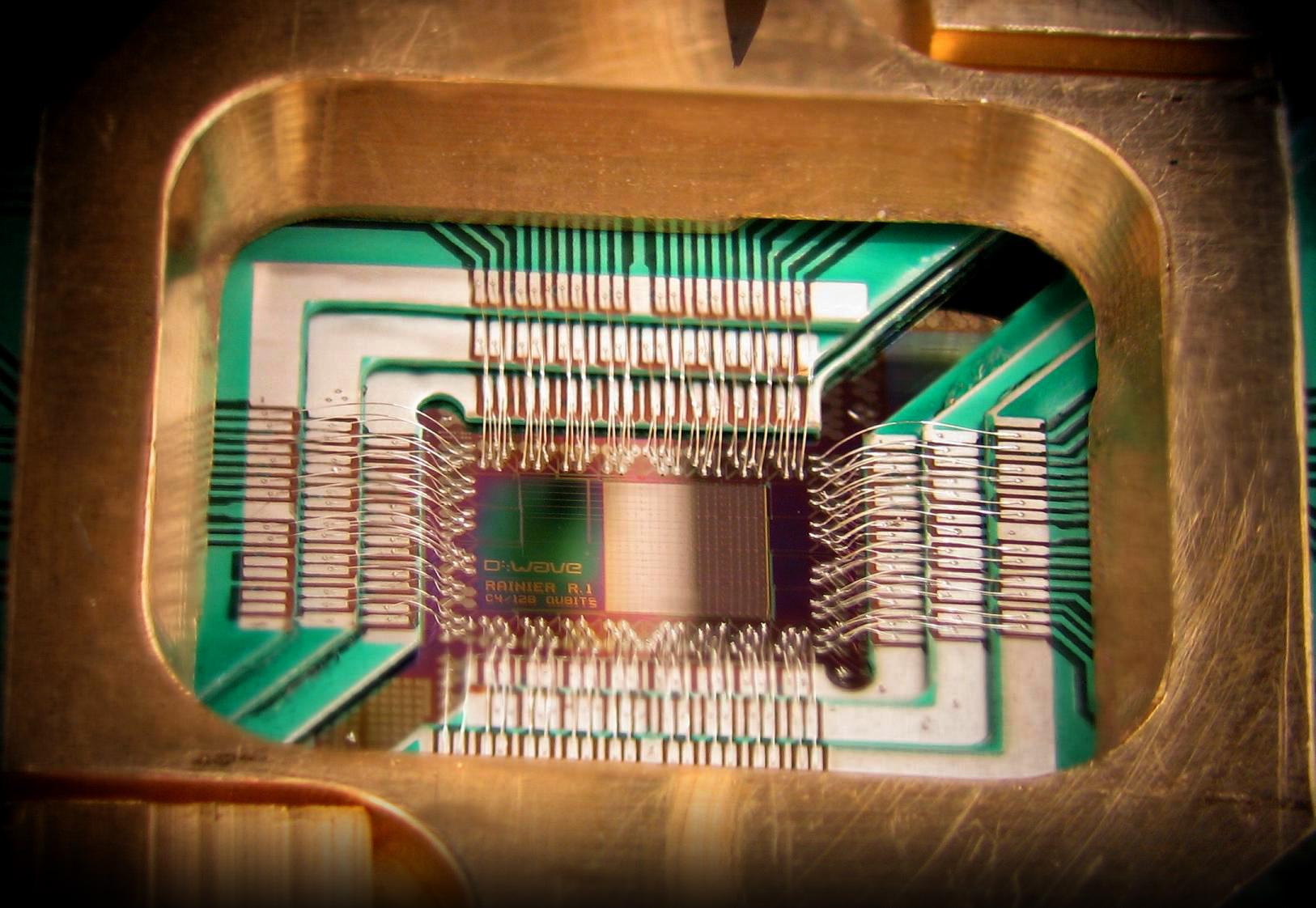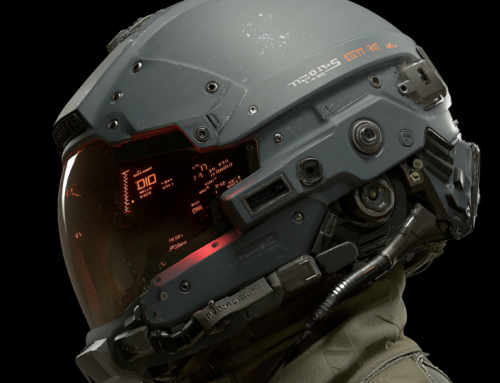
A DWave Computer Chip illustrates the technology’s complexity.
Of Qubits, Quantum Supremacy & IBM Competition
After 35 years of waiting for significant advancements, scientists and techno geeks will not have to wait much longer for the vaunted age of quantum computing. Both Microsoft and Google say they will have big news to share in the coming weeks, according to a story in the Financial Times by Richard Waters.
Some of the leading companies in the field say quantum machines, harnessing the properties of quantum mechanics to greatly speed up computation, will have important practical applications within five years — far earlier than once thought. “We have an opportunity to solve a set of problems that couldn’t be solved before,” says Todd Holmdahl, head of Microsoft’s quantum team, who backs the five-year prediction. “On a classical computer they would take the life of the universe to solve.”
While DWave, a Canadian company, has had a limited version of a quantum machine available for seven years, a true quantum computer is expected to be able to handle a multitude of tasks.
The benefits claimed for the technology include simulating molecules, leading to breakthrough drugs and making machine learning far more powerful. However, others working on the technology claim this is far too optimistic.
Mike Mayberry, the head of Intel Labs, predicts it will take another 10 years to create machines that are capable of that kind of ability. Microsoft hasn’t yet produced a “qubit” or quantum bit, which is the basic building block of the machines, though other companies, such as IBM, have had them since 1998. However, Microsoft is expected to announce that it is “imminently close” to a working qubit design that is expected to quickly surpass currently technology.
Microsoft’s design tackles one of the biggest drawbacks in the technology. Quantum machines require extensive error-correction to make up for the fact that qubits are inherently fragile. They only remain in a quantum state for a tiny amount of time, and are hard to read without interfering with the results. The company’s answer: a type of qubit that effectively fragments electrons, so that the same piece of information is held in multiple places at the same time. If one part of the qubit decoheres, the information it contained is not lost, making the overall system far more stable.
Google is expected to announce that it has developed a quantum machine that works at the limits of classical computers, known as “quantum supremacy.”
Google set out a timetable to reach quantum supremacy by the end of 2017, with its testing due to start in the final days of the year. Its test was designed to show that its 49-qubit system could solve a problem designed to be beyond any classical computer. The company did not comment on the outcome, and a successful result would need to be reviewed before scientific publication. However, IBM stole some of the search company’s thunder when it succeeded in programming a supercomputer to simulate a quantum machine with more than 50 qubits, a feat that had not been thought possible.







Leave A Comment